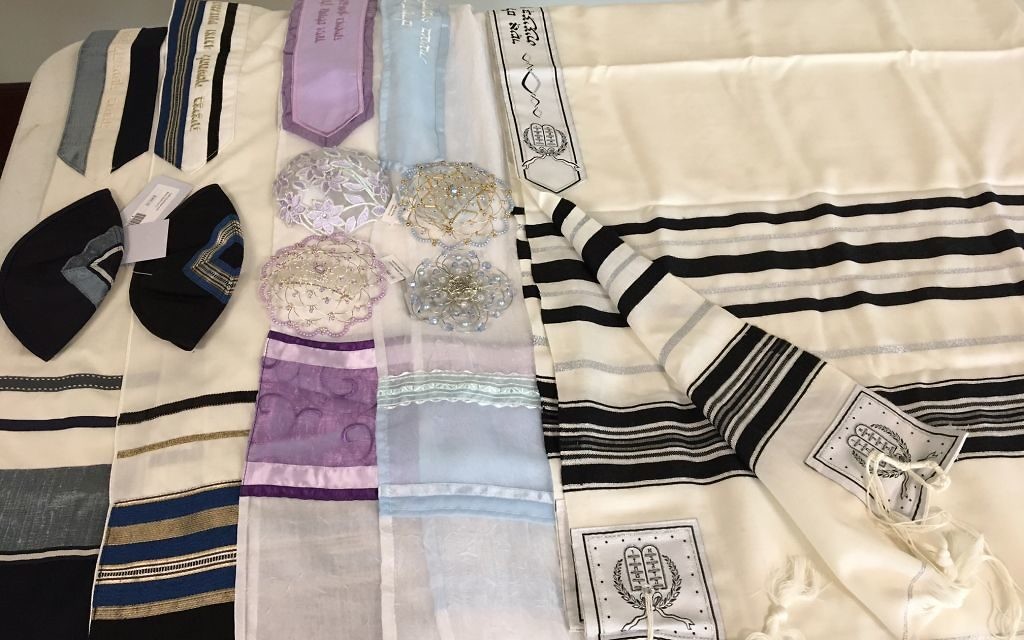Synagogue Stores Struggle to Stay Open
Those that remain provide personally selected options for simcha shopping.
Many Atlanta synagogues have closed the doors on their gift shops in recent years, and some remaining vendors are struggling to maintain their hold on customers.
“The one at Sinai closed, the AA (Ahavath Achim Synagogue) shop closed, Shearith Israel, they all closed. It’s crazy,” said Sheila Schwartz, who manages the store at Congregation Beth Shalom. The Temple, Atlanta’s largest congregation, briefly tried a self-service Judaica shop in partnership with ModernTribe after turning its store into a coffee lounge.
The remaining shul stores offer options for simcha shopping to members and nonmembers alike.
Get The AJT Newsletter by email and never miss our top stories Free Sign Up
“Our biggest challenge is getting people into the shop. We are not exactly a destination. They have to know about us, and unless you belong to our synagogue, you don’t,” she said in a telephone interview. “Getting our name out is very difficult. There are a lot of people who are unaffiliated and might want something, but they don’t know we exist.”
Schwartz has run the Beth Shalom location for 15 years and laments the advent of online shopping for cutting into her business, but she doesn’t use the Beth Shalom website for commerce. “We don’t sell anything (online). None of us is that computer-literate. If someone wants to do that for us, we’d love it. We’re just a lot of little old ladies who volunteer and work very hard.”
She said one advantage of a brick-and-mortar Judaica store is that shoppers can see and touch the merchandise. She touted the wide array of tallitot she has available, as well as items usually found only in Israel, where she goes frequently on buying trips.
“My children live in Israel. I go there twice a year, and while there, I shop, and I bring things back in my suitcase so I don’t have to pay any shipping,” Schwartz said. “I’ve been to a shofar factory, which was a very interesting experience. Been to Tel Aviv, Jaffa; it’s fun. I get lost a lot. My husband drives, and we have adventures trying to find where we want to go.”
Calling a synagogue gift shop “a unique animal,” Schwartz said it’s a mitzvah to shop there “instead of going to a place where they’re in it for the profit. We do it as a fundraiser for the synagogue. You get points in heaven if you shop with us.”
A key element in this type of retail operation is a dedicated group of volunteers, Schwartz said, and that point was echoed by Illyse Sheaffer, Temple Kol Emeth’s Sisterhood president.
“It is the volunteers that make and/or break the gift shop,” Sheaffer said. “Volunteerism has declined in areas like this, but we continue to pursue the best we can. We too have been faced with the decision to keep the gift shop open or close it in recent months. It is the persistence and passion of some very special people that are ensuring us keeping our shop open.”
Money raised by sales at the TKE Sisterhood store go toward provisions for Habitat for Humanity and the Zaban Paradies Center shelter, donations to Jewish youth groups, and the synagogue’s High Holiday campaign, among other endeavors.
Beth Shalom’s Schwartz said she doesn’t know why those other synagogue shops closed. “Maybe they couldn’t get enough volunteers; maybe there was not enough business. They all have their reasons, but we just keep going.”





comments